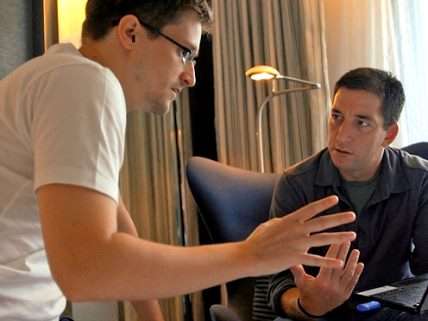Kurt Loder Reviews Citizenfour

In January 2013, Laura Poitras, an American documentary filmmaker, was drawn into a heavily encrypted email correspondence with a person using the name "citizenfour." Poitras' area of journalistic enterprise was U.S. government behavior in the wake of 9/11. Her 2006 film, My Country, My Country, had won her both an Oscar nomination and, she said, a place on a Department of Homeland Security watch list. "Citizenfour" was appreciatively aware of this, and he had a new story he wanted her to tell. He claimed that America's National Security Agency, already suspected to be out of control, was engaged in a secret program of domestic surveillance that was actually vast beyond the dreams of paranoia. "Which I can prove," he said. He had already been in contact with journalist Glenn Greenwald. Now he wanted to rendezvous with Poitras and Greenwald, face to face. In an anonymous hotel room in Hong Kong, they met Edward Snowden, rogue NSA analyst, and became privy to his hoard of downloaded secrets.
This eight-day debriefing now forms the bulk of Poitras' bombshell documentary, Citizenfour. The director began filming their hotel-room encounter right away, and part of the film's power is the fresh sense it conveys of a veil being drawn back from our eyes to reveal a shocking new world. Snowden's revelations, which began appearing in the Guardian and the Washington Post in June of 2013, are now dismally familiar. But here, along with Poitras and Greenwald, we're hearing them related for the first time, and they still astonish, writes Kurt Loder.


Show Comments (0)